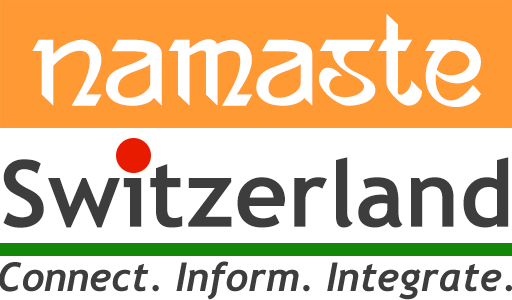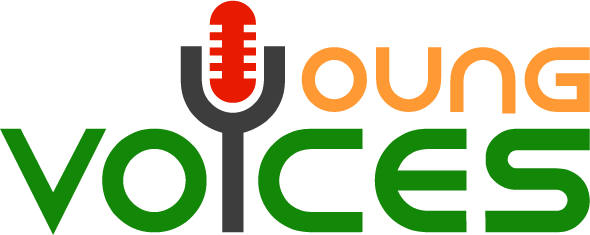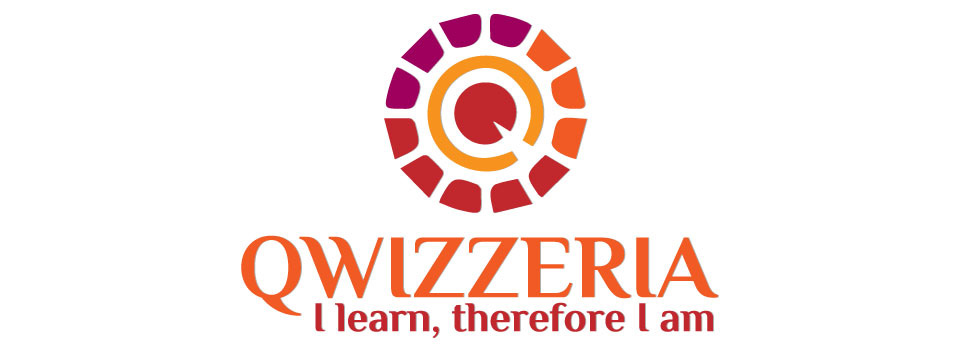Having been an ex-pat in Hong Kong, I know how it feels to start a new life in a foreign country. You need help in terms of organising your household or childcare, and it’s often not easy to find your way through the jungle of incomprehensible foreign laws. To make your life in Switzerland more convenient, this series of short articles provide an overview of the provisions that must be observed when hiring a domestic helper or nanny in Switzerland.
Here is a quick overview of the contents covered in this article.
Part I (this month)
1. Can I hire a foreign domestic helper?
-
- Employees from EU/EFTA countries
- Employees from third countries
- Domestic helpers of executives relocating to Switzerland
- Au-Pairs
- Sanctions for breaches of registration and permit requirements
2. What rights and duties apply to the employment relationship?
-
-
- Do I need a written employment contract?
- What applies if we don’t determine anything at all?
- Are there minimum wages?
- Are there maximum working hours?
-
Part II (up ahead)
3. Is the employment relationship subject to any social security insurance?
- Social security insurances (AHV/IV/EO, ALV, FAK)
- Accident insurance
- Occupational pension scheme (Berufliche Vorsorge «BVG»)
- Withholding tax
4. What happens if my nanny gets sick?
5. Can I hire my domestic helper on an hourly basis?
6. Closing remarks
Let’s get started with part I
1. Can I hire a foreign domestic helper?
When it comes to the admission of foreign workers in Switzerland, a dual system applies depending on location:
a. Employees from EU/EFTA countries
Thanks to the Agreement on the Free Movement of Persons, employees from EU/EFTA states have easy access to the Swiss labour market. For a period of work of up to 90 days per calendar year (uninterrupted or by the day), there is only a registration obligation. For employment of more than 90 days per calendar year, a permit is required, but issued without conditions.
b. Employees from third countries
The employment of workers from third-countries is subject to a work permit, which is only issued if certain conditions are met. The authorities may limit the number of foreign workers and the admission is only granted if it can be proven that no suitable skilled worker could be found in the domestic labour market and in the labour markets of the EU/EFTA states (so-called “national priority”). Further, work permits are generally only granted to executives, specialists and other qualified workers. Lastly, the authorities will check whether the wage and working conditions customary in the location, profession and industry are adhered to.
Due to these increased requirements, the permit for the employment of a non-EU/EFTA foreign domestic helper usually fails.
However, special requirements apply to domestic helpers or executives relocating to Switzerland and to Au-pairs
c. Domestic helpers for executives relocating to Switzerland
An exception from the general conditions may be granted for domestic helpers working for executives in management positions that are transferred to Switzerland. Their professional and social obligations as well as the care of their children may render the employment of domestic staff necessary. In such cases, domestic helpers who are responsible for domestic duties and/or childcare can be considered “qualified” as requested by law if they have already been employed for at least two years by the family who is temporarily or permanently moving to Switzerland. A written application must be submitted to the authorities, including a written employment contract, which must contain certain aspects.
d. Au-pairs
Then employing an Au-pair from a third country (e.g. USA, Canada, Thailand), the employment must be contractually regulated and further requirements such as minimum and maximum age, the one-year limitation, compulsory language course, minimum compensation, recruitment by a recognised organization, etc. must be met.
e. Sanctions for breaches of registration and permit requirements
Please note: Employment may only be taken up after registration or grant of a permit. The employer is responsible for ensuring that the employee holds the necessary permit. Anyone who deliberately employs someone without a valid work permit or accepts cross-border services from people without a corresponding permit is subject to criminal sanctions and faces prison sentences of up to one year and, in the event of recurrence, up to three years, as well as fines. If the offence is committed through negligence, the penalty is a fine of up to CHF 20,000.
2. What rights and duties apply to the employment relationship?
According to Swiss private international law, the law of the country in which the employee carries out his work governs the employment contract. Thus, even if the employer and domestic helper are of foreign nationality, the employment relationship will be governed by Swiss law if the work is performed in Switzerland.
Under Swiss law, in contrast to other countries, the rights and duties of employment relationships are specified in quite some detail. Articles 319 – 342 of the Swiss Code of Obligations (“CO”) provide mandatory and non-mandatory provisions. Some of them can be deviated from in writing only. For domestic helpers, national and cantonal standard employment contracts, the so called “Normalarbeitsverträge” (“NAV”), provide special provisions taking precedence over the general, non-mandatory provisions of the CO. Furthermore, mandatory provisions of social security legislation must be observed.
Do I need a written employment contract?
The employment contract does not need to be in writing. Therefore, it is also possible to conclude a contract orally or even by implication. However, since certain non-mandatory legal provisions can only be deviated from in writing (e.g. exclusion of overtime compensation or extension of the notice period), a written employment contract is highly recommended. In particular, regarding the beginning and duration of the employment relationship, working hours, holidays, wages and continued payment during sickness as well as the duration of the notice period should be agreed in writing. Further, if the parties wish to exclude certain (or all) provisions of the cantonal NAV, they must do so in writing.
What applies if we don’t determine anything at all?
If the parties refrain from determining their contractual relationship, the rights and obligations are automatically governed by the special and general legal provisions of employment law (which means by the relevant cantonal NAV applicable at the place of work, the national NAV and the Swiss Code of Obligations, “CO”).
For example, the NAV for domestic helpers in the canton of Zurich stipulates that the employer must take out daily sickness benefit insurance, which provides a daily allowance of 80% of the salary for 720 days from the 31st day of illness on. The employer must pay at least half of the premium. Anyone who fails to do so must bear as much as the insurance would cover. This provision in the NAV goes much further than the provision in the CO which in case of sickness provides for salary payment for at least three weeks during the first year of service and a reasonably longer period thereafter. If the employer only wants the CO to apply, the corresponding provision of the NAV must be excluded in writing.
In addition, the NAV in the canton of Zurich provides for higher holiday entitlements from the age of 50 or the eleventh year of service on as well as severance pay and includes provisions on compensation for work attendance, weekly work and leisure time, breaks and night rest and access to the Internet. Live-in workers are entitled to a spacious, lockable single room and unrestricted use of the sanitary facilities.
The scope of application of the NAV in the canton of Zurich is wide and includes all household tasks in a private household such as room care, child care including Au-pairs, babysitters and domestic helpers.
Are there minimum wages?
The national NAV of domestic work provides for compulsory minimum wages for domestic helpers in private households. It applies all over Switzerland except for the canton of Geneva. The minimum wages are between CHF 19.20 and 23.20 gross per hour (without surcharge for holidays and paid public holidays in case of employment on an hourly basis). If a domestic helper receives part of the wages by way of board and lodging, the value of such benefits is determined at predefined rates (e.g. breakfast at CHF 3.50 per day resp. at CHF 105 per month; lunch at CHF 10 per day resp. CHF 300 per month and full board and lodging at CHF 990 per month).
The minimum wages apply to all domestic helpers with a minimum average of 5 hours of employment per week with the same employer, but not to Au-pairs, young people who are employed occasionally and exclusively to look after children and persons who look after children outside the family (e.g. lunch table). The minimum wages are mandatory and cannot be modified.
Are there maximum working hours?
Usually, the Swiss Labour Act provides provisions on maximum working hours. However, this act does not apply to employment relationships in private households. Thus, the cantonal NAV’s for domestic work usually contain provisions against excessive working and presence times. In the canton of Zurich for example, the NAV provides for a weekly working time of 43 hours for domestic workers and 30 hours per week for Au-pairs, unless the parties have agreed otherwise in their employment contract. These provisions can be explicitly excluded in writing.
Is the employment relationship subject to any social security insurance?
Switzerland, in contrast to other countries, definitely is a welfare state. This means that the employment relationship is subject to an abundance of social security requirements. In the next column, I will outline the general framework applicable in this context. As infringements of these provisions are subject to fines, I recommend paying special care and potentially also discuss with a specialist.
The information and comments herein do not constitute legal advice. Before taking action or relying on the comments and information given, professional advice on the relevant matters should be obtained.
ABOUT THE AUTHOR
 Isabelle Thouvenin grew up in the canton of Zurich. After studying Law in Zurich, she worked at the district court of Zurich at the departments for Divorce- and Inheritance Law and Employment Law. Since her admission to the bar in 2007, she worked for different law firms focusing on Employment Law, Inheritance Law, Real Estate Law and Family Law providing legal advice and acting as Counsel before courts for Swiss and international commercial and private clients. During her three-year stay abroad, she completed an LL.M. in Arbitration and Dispute Resolution at the University of Hong Kong and gained language skills in Mandarin (HSK II). In 2019 she joined WINZELER STEFFEN Attorneys at Law as a partner. Isabelle is married and mother to two children and enjoys spinning, hiking and reading in her free time.
Isabelle Thouvenin grew up in the canton of Zurich. After studying Law in Zurich, she worked at the district court of Zurich at the departments for Divorce- and Inheritance Law and Employment Law. Since her admission to the bar in 2007, she worked for different law firms focusing on Employment Law, Inheritance Law, Real Estate Law and Family Law providing legal advice and acting as Counsel before courts for Swiss and international commercial and private clients. During her three-year stay abroad, she completed an LL.M. in Arbitration and Dispute Resolution at the University of Hong Kong and gained language skills in Mandarin (HSK II). In 2019 she joined WINZELER STEFFEN Attorneys at Law as a partner. Isabelle is married and mother to two children and enjoys spinning, hiking and reading in her free time.
Up Next: Social security insurances (AHV/IV/EO, ALV, FAK)
Disclaimer: Opinions expressed belong solely to the content provider. Namaste Switzerland does not undertake any financial/reputational/legal/misrepresentational impact or other obligations/ liabilities that may arise from the content.












